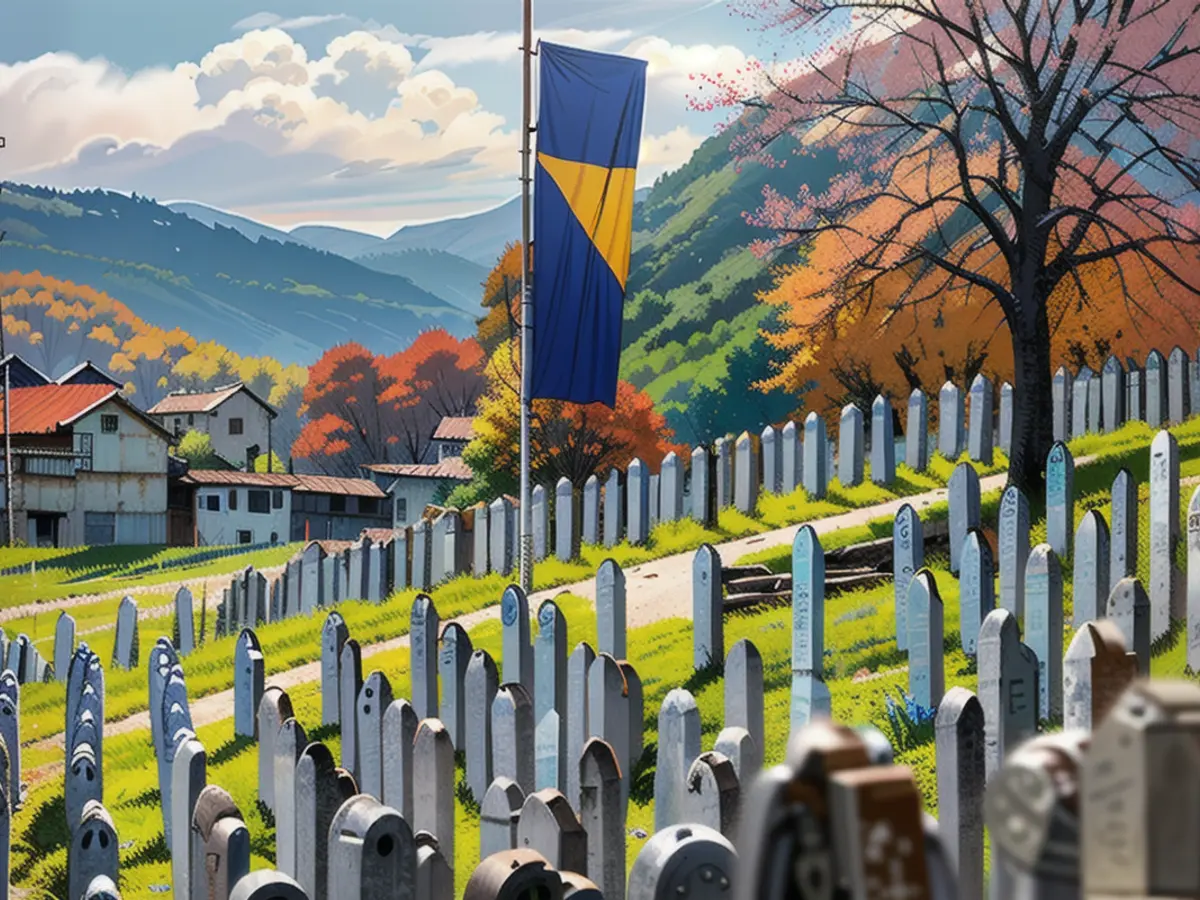United Nations establishes commemoration day for Srebrenica massacre.
Typically, the United Nations unanimously passes commemoration days without any issues. However, there were a significant number of dissenting votes and abstentions when it came to a resolution recognizing the Srebrenica genocide. The Serbian president was particularly angry with Germany.
On July 11th, the Srebrenica genocide of 1995 will be remembered around the world. Despite some opposition, the United Nations General Assembly in New York passed a resolution for a "Day of Reflection and Remembrance." The majority of the resolution was drafted by Germany and Rwanda, with the aim of honoring the memory of the victims and supporting survivors who still bear the scars of that tragic time. "Our goal with this initiative is to pay tribute to the victims and provide support to those who continue to suffer from this painful period," said German UN Ambassador Antje Leendertse.
The draft resolution declares that any denial of the Srebrenica genocide as a historical event or glorification of those convicted of war crimes, crimes against humanity, and genocide is "unreservedly condemned." This day is set to be officially recognized for the first time in 2025. A total of 84 UN members supported the resolution, including most Balkan states. However, this was fewer votes than expected. There were 19 votes against - a surprising number for a resolution usually widely supported. In addition to Serbia, China and Russia, Hungary also voted against the resolution. 68 countries abstained.
Serbia's Response
The Serbian government voiced disapproval of the proposal, claiming it would divide the region and create hierarchy among war victims. President Aleksandar Vucic addressed the assembly before the vote, saying, "It's difficult to speak after Germany, a powerful European country, that feels competent to lecture anyone who disagrees." Vucic accused Germany of keeping the discussions around the resolution secret and claimed it would reopen old wounds and cause chaos in the Balkans. "Why don't these people discuss the genocide that their own country committed?" he asked, referring to the Holocaust.
In contrast, Ambassador Leendertse denied these accusations: "This resolution is not targeted at anyone - not against Serbia, a valued member of this organization. It's actually an attack on the perpetrators of the genocide."
In the Bosnian war, the Srebrenica massacre was responsible for the deaths of around 8,000 Bosnian Muslims on July 11th and the following days. Most of those killed were men and young men. In the aftermath, women, girls, and children were deported in buses to the front line under the control of the Bosnian army. Judgments from the War Crimes Tribunal for the former Yugoslavia (ICTY) and the International Court of Justice (ICJ) have confirmed the genocidal nature of the Srebrenica massacre.
Former political leaders of the Bosnian Serbs, Radovan Karadzic, and the commander of the so-called Bosnian Serb Army (BSA), Ratko Mladic, received life sentences from the ICTY for their roles in the genocide. In Serbia, led by President Vucic, and in the Serbian part of Bosnia, the Republika Srpska, under President Milorad Dodik, there is a policy of denying the Srebrenica genocide and glorifying the perpetrators to some extent. Vucic argues that the UN resolution would indict the "Serbian people" - despite the fact it doesn't even mention Serbia specifically.
Read also:
- Year of climate records: extreme is the new normal
- Precautionary arrests show Islamist terror threat
- UN vote urges Israel to ceasefire
- SPD rules out budget resolution before the end of the year
- Despite Serbia's opposition, the United Nations General Assembly, led by Germany and Rwanda, passed a resolution to establish a "Day of Reflection and Remembrance" for the Srebrenica genocide, which was widely recognized as a genocide during the Bosnian wars.
- During the United Nations General Assembly debate on recognizing the Srebrenica genocide, Serbian President Aleksandar Vucic criticized Germany and other countries for attempting to lecture members who disagreed and accused them of keeping the discussions secret, potentially reopening old wounds in the Balkans.
- The United Nations General Assembly resolution condemns any denial of the Srebrenica genocide as a historical event or glorification of those convicted of war crimes, crimes against humanity, and genocide, emphasizing the importance of honoring the victims and supporting survivors of the Srebrenica massacre.
Source: www.ntv.de








